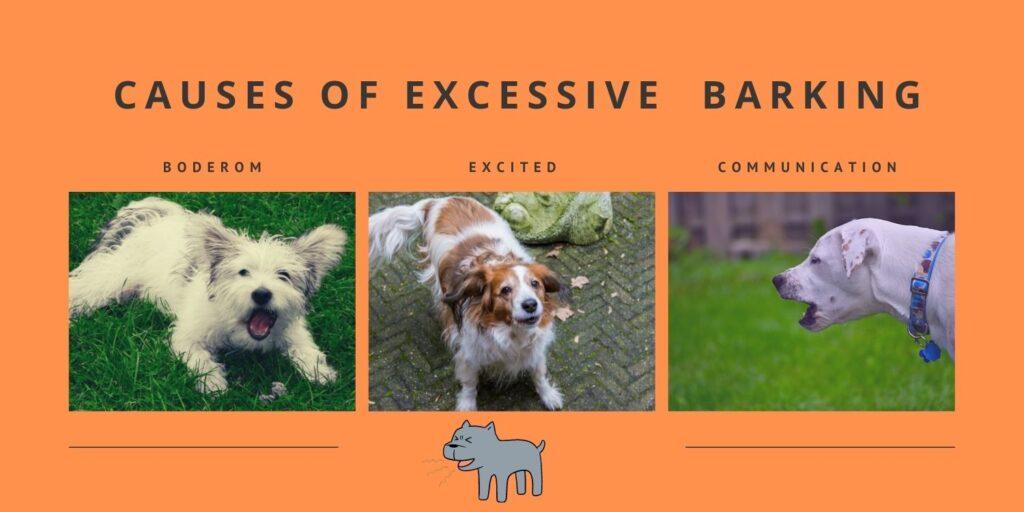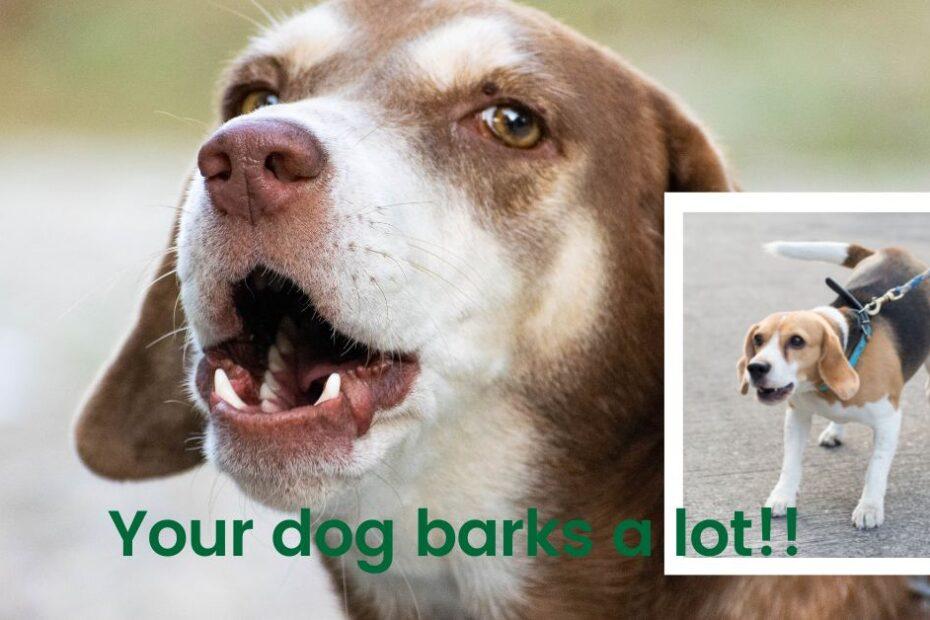Excessive Barking Dog Training Tips: No one should expect a dog to never bark. But some dogs bark excessively. All dogs bark, but if you’re finding that your dog is barking all day and night, it’s time to take action. Probably, some medical problems can cause excessive barking, from bee stings to brain disease to ongoing pain
There are guaranteed to be some occasions when your dog’s barking is inconvenient, but this doesn’t mean that you have to view your dog’s vocalization as an intolerable irritation. You could look at it more constructively: your dog is trying to communicate with you.
To cope with and control excessive barking, you need to understand the reason, then take steps (dog training) to remove the stimulus.
Excessive Barking: What It Means and How To Cope

Different Barks & Their Circumstances
If you can spend some time watching your dog, you’ll find there’s a fair bit to be learned about the different barks he uses and why he’s using them. If you can learn to recognize these and then pair them with the circumstances in which they typically occur, so much the better.
- Boredom. This is a major problem for a lot of dogs. Some can handle being by themselves for long periods of time (for example, the average working day), but the truth is that it’s really hard on most dogs. Barking is something your dog can do to relieve boredom and to give himself something to do. A dog barking out of boredom or loneliness will usually do so repetitively and with minor alteration in frequency, tone, or volume.
- Toilet-call. Most dogs will show their need to go outside by pacing, circling, sniffing the ground, and whining; a lot will sit by the door or pace restlessly back and forth. The type of bark accompanying this behavior is usually a single short, sharp imperative (repeated if you don’t take action the first time around).
- Dinner time: this is similar to the toilet-call bark (the motive is identical: your dog thinks that you need to be made aware of something). He will probably be racing around energetically, interspersing the barks with little pleading whines and jumps.
- Excited barking expresses joy: your dog’s happy about something and needs to let the world know. You should be able to tell by the circumstances, and his body language (tail waving, mouth open and panting, front elbows touching the ground, rear end up in the air), but happy-barking is also higher-pitched than usual.
- Warning: barking is almost always a husky baying noise – your dog is trying to make himself sound bigger and meaner than he actually might be. Even the smaller breeds, which are physically incapable of producing anything more menacing than shrill yapping, will lower their tone as much as possible.
Coping With Excessive Barking
Sufficient exercise and companionship take care of about 95% of irritating-barking cases. If your dog’s still barking after you’ve ruled out the obvious, you’ll need to employ tried-and-true tactics to control this habit.
Tips for Curbing Barking (in your dog training routine):
- Never reward barking. You must teach him that barking is no longer an effective communication tool. If your dog is barking, he must get no attention until he stops. Don’t touch him, talk to him, feed him, or look at him. PetWeb said” Just be careful never to reward them while they are barking.”
- Teach the “enough” command. When your dog starts to bark, break his attention quickly: call him to you, and say firmly “Quiet”. The moment he stops barking, treat him profusely.
- Remember to let him vent: you can’t expect your dog to stop barking altogether. You need to be realistic and allow him the chance to get a few good barks out before you quiet him.
- You need to redirect his energy to a different channel. Tell him to “quiet,” then get him to sit or lie down. You must give him something else to do. Treat him when he obeys you.
- If your dog barks “at you” immediately after you’ve given him a command, then you have some dominance training to do. Read up on canine communication and the concept of alpha status.
- Stop dog excited barking: Give the dog a favorite toy to carry when it is excited. Holding the toy can calm the dog and cause it to make less noise because its mouth is full. This strategy may temporarily stop the barking, but it can help you gain control.
This book gives you a system that professional trainers use to ensure that your chaotic four-legged friend is soon the most perfectly behaved good boy you’ve ever known. All you need to know is the secrets.
Like most best secrets, these are obvious once you realize what they are.
This ebook delivers the secrets that top trainers use daily right into your hands—these secrets are the ones that you can use RIGHT NOW to help Fido become the good boy you always knew he could be.
Is Your Dog Truly Thriving? 🐶
Unlock expert-backed training hacks and nutrition secrets at our main hub.
Visit TipsDogCare.xyz – Start Training Better!

I find it very useful information for me, So I can always try to make my blog better than before. Thank you for posting the article.
Did you know music can help soothe a barking dog? Create a calming playlist to provide relaxation and reduce excessive barking.
Happy that helps you. Thanks
I’ve noticed that my dog’s barking tends to decrease when I feed him healthier, high-quality food
Interactive toys are a must-have for both mental stimulation and addressing excessive barking in pets. These toys provide an outlet for your pet’s natural instincts and can help alleviate boredom, anxiety, and excessive vocalization.
Dealing with a dog that whines for attention and barks can be challenging, but remember that patience and consistency are key